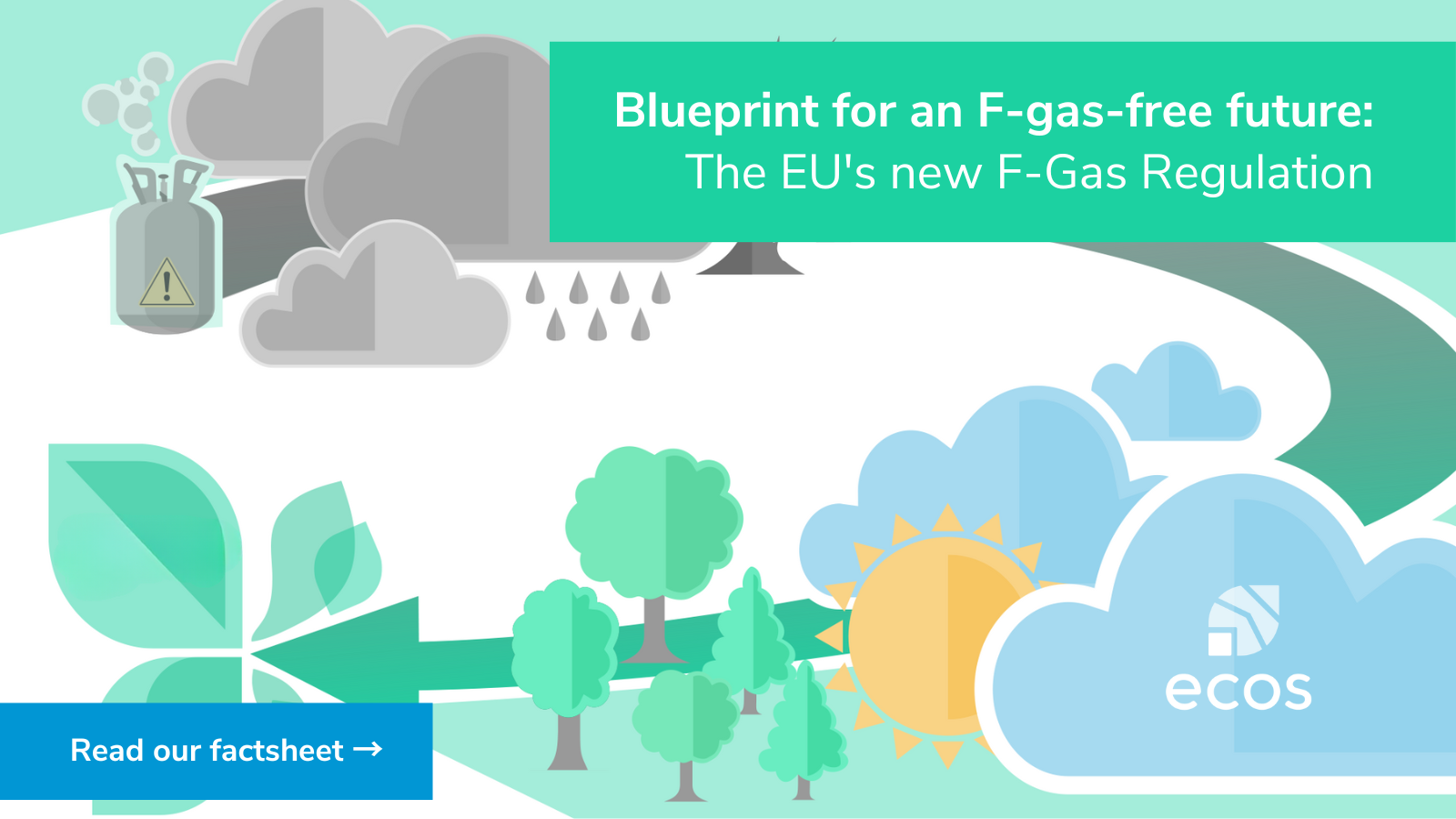In 2014, the EU F-Gas Regulation mandated that fluorinated gas emissions must be reduced by two-thirds by 2030, as compared with 2014 levels. We work to make sure this target is met. The phase-down is ongoing. Slowly, we are replacing fluorinated gases such as hydrofluorocarbons (HFCs) with climate-friendly alternative refrigerants in the refrigeration, air conditioning and heat pump sectors. But the technical complexities of this switch are holding back the transition. Safety standards drastically limit the use of climate-friendly alternatives such as natural refrigerants because of their flammable properties, without reflecting technological developments able to mitigate the risks. Even more worrying are the growing emissions of sulphur hexafluoride (SF6) from the electricity sector – SF6 is the most potent greenhouse gas, with a global warming potential (GWP) 22,200 times higher than CO2. ECOS works at both European and international standardisation level to reduce the barriers posed by standards to the uptake of natural refrigerants. At policy level, we seek to increase the ambition of the F-Gas Regulation, improving the environmental performance of the heating and cooling sector.
Related campaigns:



In April 2022, the European Commission presented its proposal for a revised Regulation on Fluorinated Greenhouse Gases (F-gas Regulation). The proposal has since been processed by the European Parliament and the Council of the EU. The ENVI committee has put forward its cross-party compromise amendments, and on 30 March the European Parliament will adopt its position in plenary.
F-gases have a huge greenhouse effect – yet they are widely used in cooling appliances such as air conditioners and freezers. The good news is that two recently updated international standards could start turning the tide. However, in Europe, red tape is holding up advancements. European institutions and national governments must weigh in for a speedier adoption.
Sulphur hexafluoride (SF6) is used in electricity grids as an insulating gas in high- and medium-voltage switchgear. It is the world’s most potent greenhouse gas with a global warming potential (GWP) 25,200 times greater than CO2 over a 100-year period. Eight NGOs call on the European Union to introduce an early phase-out of SF6 as part of the revision of the F-Gas Regulation.
F-gases – some of the most used gases you’ve never heard of – threaten our planet and our health. Commonly used in refrigeration, air conditioning, insulation, electronics manufacturing, and switchgear, F-gases have significant global warming potential. Some also break down into forever chemicals (PFAS), posing risks when they leak into the environment. The good news: F-gases will be phased out in the EU by 2050! How will they be phased out? Find out in our new factsheet.
Download the pdf

ECOS is co-funded by the European Commission and EFTA

 Funded by the European Union. Views and opinions expressed are however those of the author(s) only and do not necessarily reflect those of the European Union or EISMEA. Neither the European Union nor the granting authority can be held responsible for them.
Funded by the European Union. Views and opinions expressed are however those of the author(s) only and do not necessarily reflect those of the European Union or EISMEA. Neither the European Union nor the granting authority can be held responsible for them.
